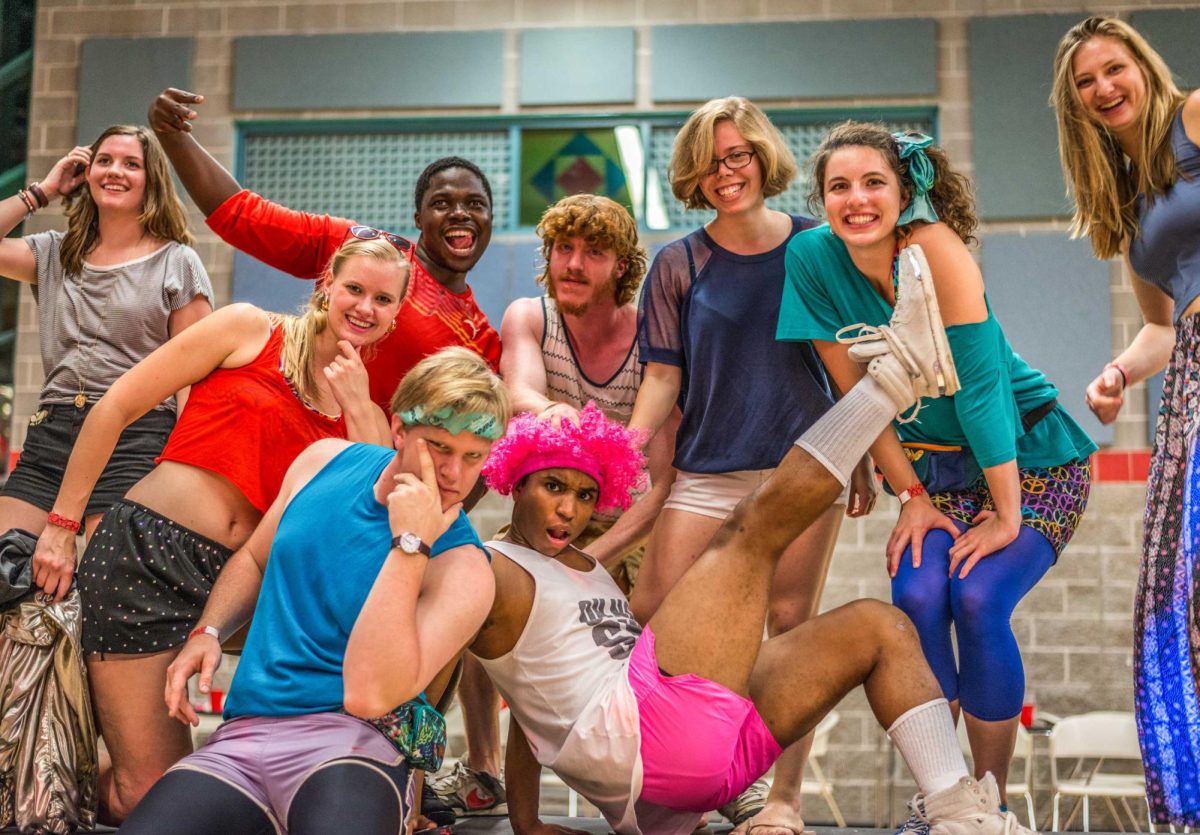By Nathan Foreman
foremanna@grinnell.edu
If you frequent Kum & Go between 10 p.m. and 2 a.m., you have probably met David McIntyre at the checkout register—he’s the one with the beard and the big smile. You may have spoken with him about your night, or the weather, or the delicious tornado you’re about to devour. What you probably didn’t talk about, however, was his time spent in Japan, his conversion to Buddhism or his experiences organizing labor unions.
David McIntyre went to Schreiner College in Texas, where he majored in Political Science with concentrations in Political Philosophy and International Relations. During his third year he studied abroad in Nagasaki, Japan. After graduating, McIntyre decided to return to Japan.
“I didn’t feel like I was finished. I originally intended to go back for a few years and then come back for graduate school,” McIntyre said. “After a couple years, I felt like I really didn’t want to go back…and eventually that turned into 19 years.”
McIntyre lived in Niigata and Osaka, where he worked as a conversational English teacher. During his time in Osaka, he converted to Buddhism.
“Buddhist practice is really in how you live your life,” McIntyre said. “You try to live your life according to the precepts. Without going into it too much, you try to live your life in a good way. The practice of Buddhism is in trying to follow the eight-fold path. Boiled down, be good to people, be mindful, sit down and think—that’s where meditation comes in.”
While working as a language teacher, McInyre found himself becoming involved in labor unions. After some years of practice, he worked his way up to the office of executive officer. He recalls a story about a particularly memorable demonstration.
“We had a big demonstration, three courses, or actions… The lunch course was a demonstration at the Governor’s office over unfair teacher’s dismissals,” McIntyre said. “We were sitting there demonstrating outside the Board of Education office. We had a megaphone, posters [and] we had a young Japanese guy who was a real firebrand. He got up there, making a speech in Japanese, and all the sudden he says ‘Let’s go’ and then we run into the office. We ran upstairs and occupied the Board of Education offices, we had other actions to go to, but we were up there for about two hours, yelling at the bureaucrats: ‘What are you doing? Why aren’t you doing the right thing?!’”
In Grinnell, McIntyre has remained politically involved as a member of the Iowa and Poweshiek County Democrats. He has served as a delegate in county, district, and state conventions and represents Ward 3 on the Poweshiek County platform committee. McIntyre was passionate about addressing two specific issues in this year’s platform—campaign finance and war crimes prosecution.
“The first thing is to get rid of Citizens United; it’s a corrupting influence,” McIntyre said. “Second, [my suggestion is that] investigations into war crimes committed under Bush and current administrations [need to occur]. We hanged people for waterboarding in the aftermath of World War II, and then we turn around and do it ourselves.”
After living in Japan for nearly two decades, McIntyre decided to return to the United States to spend more time with his family.
“Nineteen years is a long time and I knew I wasn’t going to live there forever,” McIntyre said. “I was getting to an age where if I was going to move back I would have to do so soon. My folks were getting old, and it’s really hard to not get to see your family regularly. I have two nephews who I wanted to see more.”
Despite the socioeconomic differences between living in a large city in Japan and a small city in Iowa, McIntyre has acclimated to Grinnell and enjoys living here.
“The transition has been very interesting,” McIntyre said. “Osaka, where I spent most of my time, has a population of 8 million people. There’s not all the conveniences that I’m used to, but I can walk anywhere in town.”
Living in Japan has given McIntyre a unique perspective on the human condition.
“One of the biggest things I learned was that cultural differences are really superficial; people are people,” McIntyre said.


















































